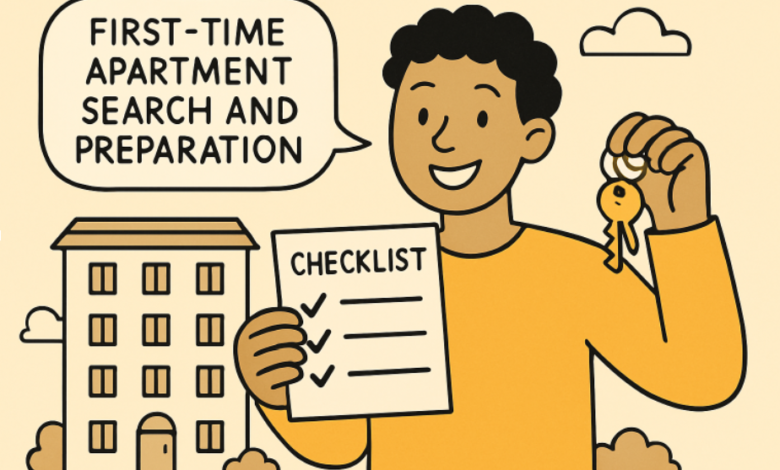Smart Steps for First-Time Apartment Seekers

Finding your first apartment can be overwhelming due to the numerous details to consider, including budgeting, location, amenities, and lease terms. Without a plan, it’s easy to overlook comfort and affordability. By taking smart steps early, such as researching neighborhoods and understanding lease agreements, first-time apartment seekers can avoid common pitfalls and secure a place that fits their lifestyle and budget.
Why Planning Ahead Pays Off
Starting your first apartment search is exciting but stressful without a plan. Planning helps avoid pitfalls, expenses, and last-minute panic. A checklist and realistic move-in date keep you organized, allowing time to compare listings, gather documents, and negotiate lease terms. Consulting with New York City, NY, real estate experts Mirador Real Estate early in the process can give you a solid advantage. Industry professionals can clarify the market process and identify hidden gems that align with your goals.
Most specialists recommend at least 60 days to find and secure an apartment, especially in competitive markets. This period allows exploring options, completing applications, and managing screening. Early planning helps avoid surprises like paperwork delays or unexpected fees, which are common hurdles for first-time renters.
Setting a Realistic Apartment Budget
First-time renters face challenges sticking to a budget. Experts suggest spending no more than 30% of income on rent and utilities. Rent costs include security deposits, application fees, move-in expenses, and ongoing costs like internet or insurance. Missing these can strain finances. Use online tools or templates from trusted sources to plan effectively. Planning prevents overspending and helps cover unexpected costs.
Identifying Your Apartment “Must-Haves”
Before contacting landlords or scheduling tours, clarify which features are non-negotiable and which are flexible. Ask yourself whether you require amenities such as a dishwasher, in-unit laundry, on-site parking, pet-friendly facilities, or proximity to public transit. List these priorities and separate them from the amenities you’d like but could live without. Being clear on your must-haves helps narrow your search and prevents decision fatigue. It also empowers you to communicate confidently with property managers, ensuring you only spend time viewing apartments that genuinely suit your needs.
Researching Neighborhoods for the Right Fit
An apartment’s location greatly affects your daily life. Research neighborhoods using tools like Google Maps, forums, blogs, and government sites for info on commuting, crime, shops, green spaces, and atmosphere. Visiting in person at different times helps assess safety, noise, and community by talking to locals.
The Importance of Apartment Tours and Inspections
Virtual tours are helpful, but in-person visits are best. During a tour, check the apartment’s condition: test appliances, faucets, light switches, inspect windows for drafts, and look for mold, pests, leaks, and wiring issues. These inspections can save money and stress by catching problems early. Take photos of any damage and share them with the landlord to protect your security deposit. Be thorough to avoid overlooked issues that may cause problems later.
See also: Transformative Business Opportunities Every Entrepreneur Should Explore in 2025
Decoding Lease Agreements and Fees
Lease agreements are often dense with legal terms and fine print. Don’t rush—read each section carefully before signing. Check for rent increases, repair duties, late fees, pet rules, guest policies, and subletting clauses. If anything is unclear, ask for clarification or consult a trusted source. Pay attention to renewal options, notice periods, and all fees. Being informed about your obligations helps ensure a smooth rental experience and avoids misunderstandings that could risk your deposit or housing.
Preparing for a Smooth Move-In Day
Once your lease is signed, plan your move immediately. Book moving services early for better rates. Notify utility companies to avoid arriving to a dark apartment. Update your address with the postal service, banks, and employers. Pack essentials for your first night—cleaning supplies, bedding, toiletries, and documents—to avoid scrambling. An organized move-in creates a smooth start and prevents losing items or rushing.
Bonus Tips for a Successful Apartment Search
Flexibility with move-in dates can provide more options, especially during peak seasons. Document the apartment’s condition on day one to avoid disputes. Communicate with landlords and brokers in writing and save copies. Use reputable online rental platforms, but verify listings before sending money. With careful preparation and professional advice, you can find a space that suits your needs and prepares you for success in your next chapter.
Conclusion
Planning ahead is crucial when searching for your first apartment. Budget wisely, identify must-haves, and review lease agreements to reduce risks and boost confidence. With research, realistic timelines, and attention to detail, first-time renters can find a home fitting their lifestyle and budget. Preparedness and patience help you not just find a place to live, but lay a foundation for a smooth, rewarding start to your new chapter.



